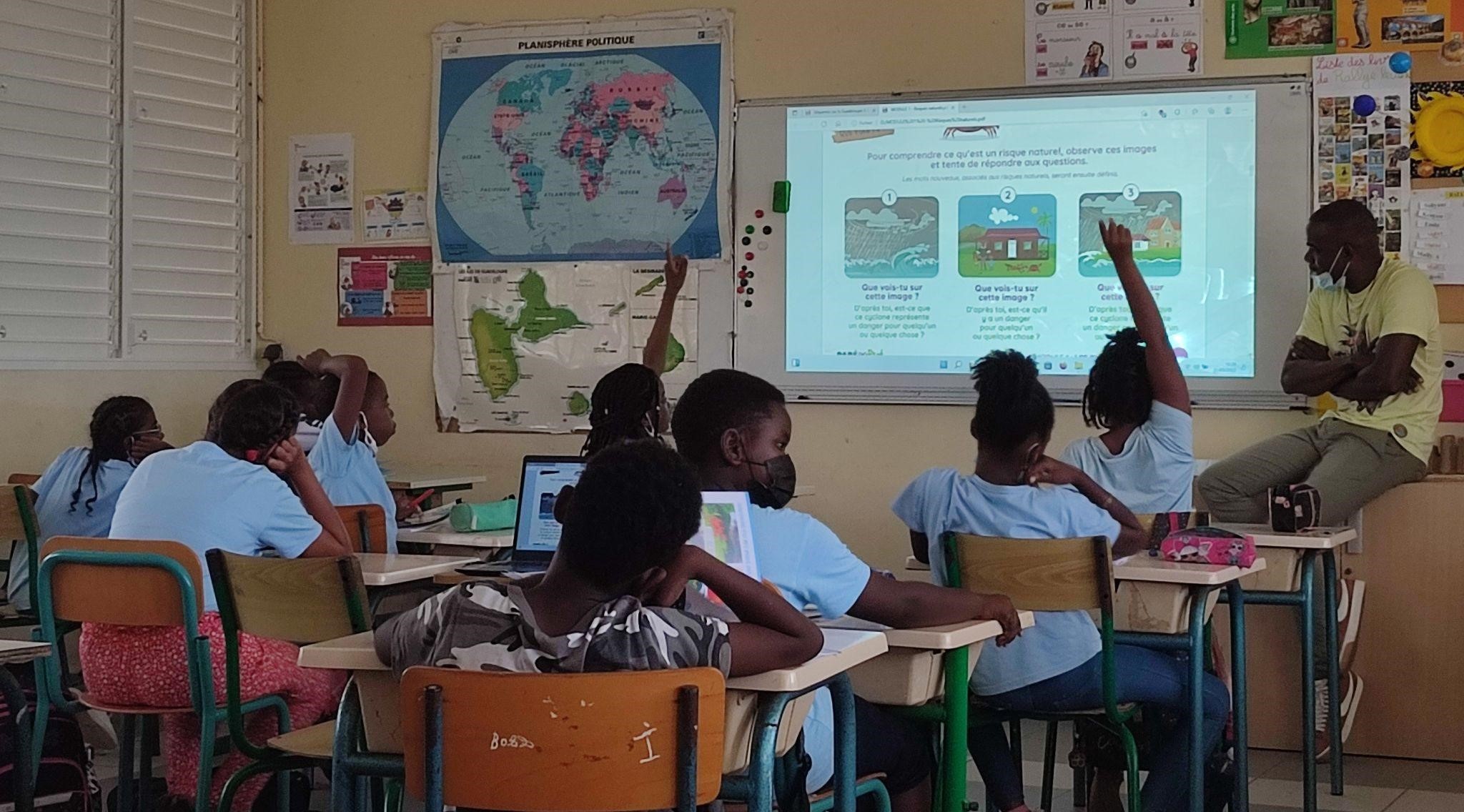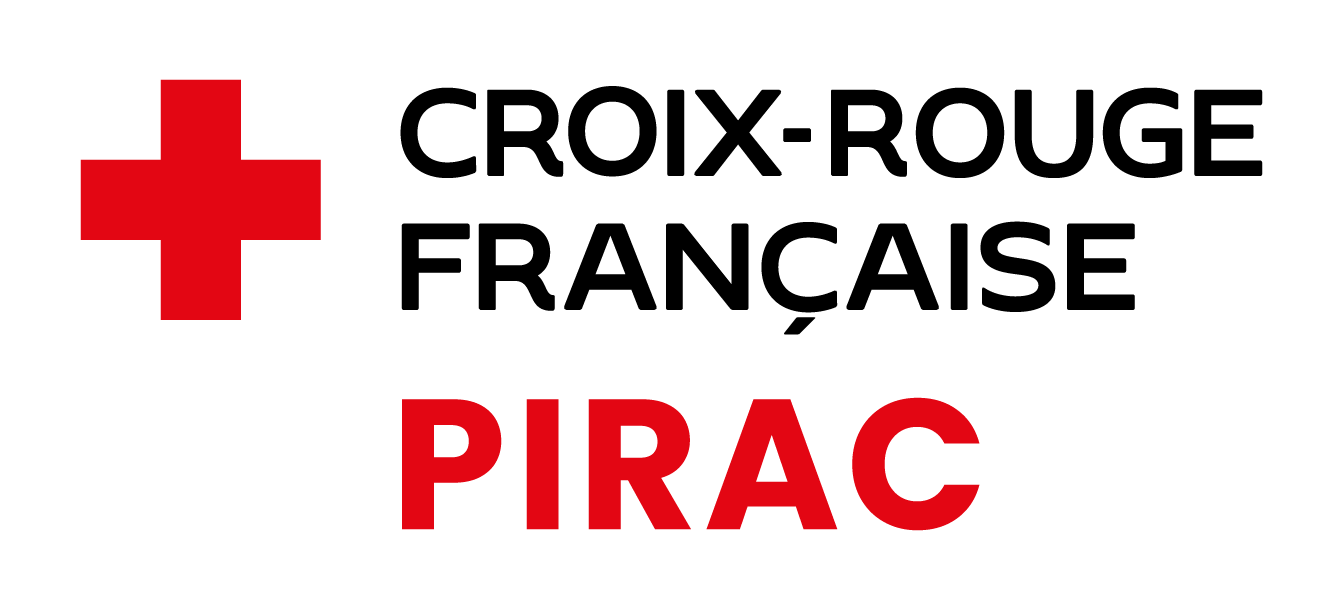Let’s Be Prepared program
The Let’s Be Prepared project aims to reduce the vulnerability of Caribbean populations to disaster risks by improving their knowledge of the hazards and effects of climate change. Through the promotion of playful and educational tools, it focuses on the entire population, especially the very young, to teach them the right reflexes and enable them to ensure their own self-protection.

CONTEXT
The island territories that make up the Caribbean are characterized by increased vulnerability to disasters, the effects of climate change and its environmental impacts, both geographically and economically. This vulnerability is further accentuated by the concentration of populations in coastal areas, the limited preparedness of communities and institutions, and the lack of resources available to territories to cope with these risks due to their geography, size and isolation.
Since 2019, the French Red Cross has been developing a Disaster Risk Reduction project in Guadeloupe called Paré pa Paré, which, in partnership with the various public institutions involved in risk prevention and education, has developed edutainment tools to enhance people’s preparedness through a fun, diversified approach.
The Let’s Be Prepared program, in addition to broadening the beneficiary public in Guadeloupe (by including students with disabilities), aims to share this experience with international players and Caribbean territories. While the project remains locally rooted in Guadeloupe, as close as possible to the local population, it is now part of a dynamic of regional cooperation in the field of disaster risk reduction.
3 MAIN GOALS
The Let’s Be Prepared program aims to achieve 3 main objectives through the implementation of activities:
1- Strengthen the expertise of Caribbean stakeholders in disaster risk reduction in schools and for the general public, by sharing experience, mutualizing initiatives and promoting the Paré Pa Paré methodology.
2- Strengthen the risk culture of the general public, families and young people in Guadeloupe, by improving their knowledge of risk and the measures to adopt before, during and after a dangerous event
3- Facilitate risk education for people with disabilities, by adapting the Paré pa Paré approach and developing new adapted tools.

PARTNERS
Institutional partners : Guadeloupe Board of Education (Rectorat de l’Académie de Guadeloupe), Région Guadeloupe, Caribbean Emergency and Disaster Management Agency (CDEMA)
They took part in the Let’s Be Prepared program:
Volcanological and Seismological Observatory of Guadeloupe (OVSG)
The French Agency for Ecological transition
Guadeloupe Environment, Urban planning and Accommodation Department (DEAL)
TARGET AUDIENCE
The Let’s Be Prepared program aims to support populations in better preparing for disasters and increasing their risk culture by implementing activities with four target audiences:
- Public institutions: the program enables the several public institutions involved in risk prevention in Guadeloupe to benefit from a framework for the dissemination of practices, and thus enrich their knowledge of the means of disseminating messages.
- the Guadeloupean population: children and young people will improve their knowledge of the risks to which their territory is exposed through prevention activities led by teachers and extracurricular workers trained by the project. Finally, the general public will be made aware of disaster risks through events and public awareness sessions led by Red Cross volunteers trained in this theme and in Paré pa Paré tools.
- Caribbean risk reduction stakeholders: the approach implemented by the French Red Cross and the several tools developed will be presented to Caribbean risk reduction stakeholders, specially at a Regional Meeting bringing together the organizations concerned.
- Guadeloupean stakeholders in the education of people with disabilities: the aim of this project is to adapt the working methods and tools of the Paré pa Paré project to enable inclusion stakeholders to raise awareness of disaster risks among their audiences, and to pass on the right reflexes, while taking account of their specific needs.
The Let’s Be Prepared program is co-financed by the INTERREG Caribbean program through the European Regional Development Fund. The European Union financially supports Let’s Be Prepared program. However, the opinions and information expressed in this document do not necessarily reflect those of the funders.

